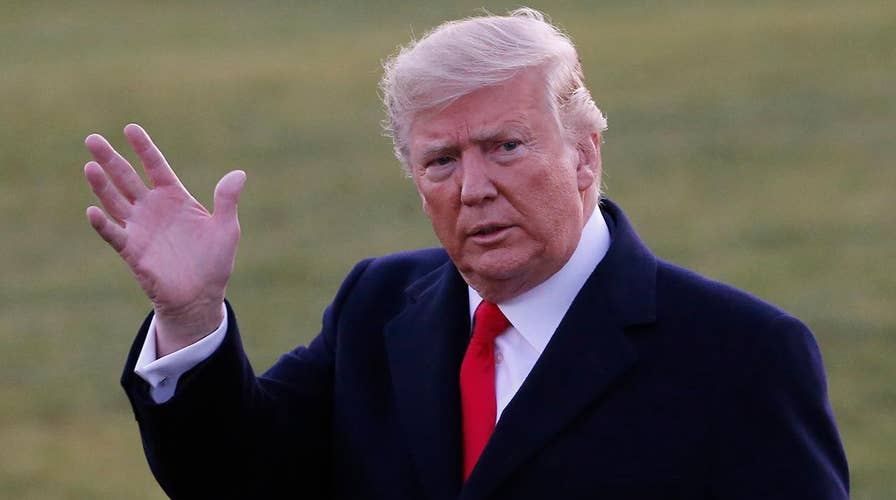President Trump to be impeached by the House
Democrats have the votes to impeach the 45th president.
It was a reality show impeachment of a reality show president.
As in many such programs, the drama was largely scripted and the outcome was preordained.
After the usual procedural wrangling, after a day of one-minute speeches by a parade of lawmakers, the House voted to impeach President Trump on two counts yesterday with only Democratic votes, aside from three defections, and every Republican opposed. That makes it no less historic—although these have been happening every 20 to 25 years since Watergate—but virtually guarantees Trump’s acquittal in the Senate.
In some ways there was more suspense when Trump fired contestants on “The Apprentice.”
The accusations against the president are serious business, destined to be mentioned in the first line of his obituary. The Democrats say he improperly pressured Ukraine to announce an investigation of his political rival by withholding military aid and a White House meeting for its leader. The Republicans say there was no quid pro quo, that this did not rise to the level of an impeachable offense, and that the whole process has been unfair.
The House vote came as polls showed the country almost evenly divided, with 45 to 50 percent favoring impeachment and removal but that support declining a bit in some surveys. And the party-line nature of the vote reflected the deep partisanship in the public, with 85 percent of Democrats favoring impeachment and removal and 86 percent of Republicans opposing it, in the Washington Post/ABC survey.
The Democrats almost uniformly adopted a more-in-sorrow tone, saying this was a sad day and avoiding any hint of celebrating their one-sided victory. Some Republicans were more agitated, decrying the process as a sham. One channeled FDR after Pearl Harbor, saying the day would "live in infamy"; another compared the proceedings to the crucifixion of Jesus.
After so many interminable hearings, after saturation coverage of the Ukraine controversy that followed two years of reporting on Russia, the House debate seemed numbingly familiar. It felt like every conceivable argument for or against impeachment had been made again and again.
The same goes for the media, with reporters and anchors, columnist and commentators, repeatedly using similar language and arguments as they kept plowing the same ground. This is the first Twitter-era impeachment, and we are all drowning in verbiage and polemics.
SUBSCRIBE TO HOWIE'S MEDIA BUZZMETER PODCAST, A RIFF OF THE DAY'S HOTTEST STORIES
About the only plot twist was Trump’s angry letter to Pelosi, saying the Salem Witch Trials were more fair.
“This is nothing more than an illegal, partisan attempted coup that will, based on recent sentiment, badly fail at the voting booth…History will judge you harshly as you proceed with this impeachment charade,” Trump declared. He also took shots at Joe Biden, Adam Schiff and FBI leaders. The speaker dismissed the six-page missive as “ridiculous” and “sick.”
The letter, in my view, is pure Donald Trump, whatever writing assistance he may have received.
Back in 1989, when I was covering him in Manhattan, he sent a similarly vitriolic letter to another woman, which made its way into the New York Post. Trump called hotel queen Leona Helmsley a “disgrace to humanity,” writing with a bow to her husband:
“Without the veil of Harry Helmsley, you would be a non-entity. You would not be able to randomly fire and abuse people in order to make yourself happy. “What has happened to the legendary Helmsley reputation is indeed sad -- but I am not surprised because I know you so well. When God created Leona, the world received no favors.”
He’s had plenty of practice.
Now that Trump has officially become the third impeached president in American history, the question is whether this helps or hurts his reelection campaign. He’s obviously in a fighting mood, making his case last night at a rally in Battle Creek, Mich. The president and his Republican allies have been blanketing the airwaves with impeachment ads, according to the New York Times, while Democrats are advertising mainly on health care and other issues.
It’s a long time between now and November, but ultimately either Trump will convince the electorate that this was a failed coup or his Democratic opponent will successfully argue that it was a black mark on his presidency.

